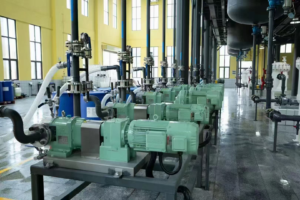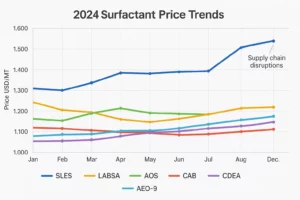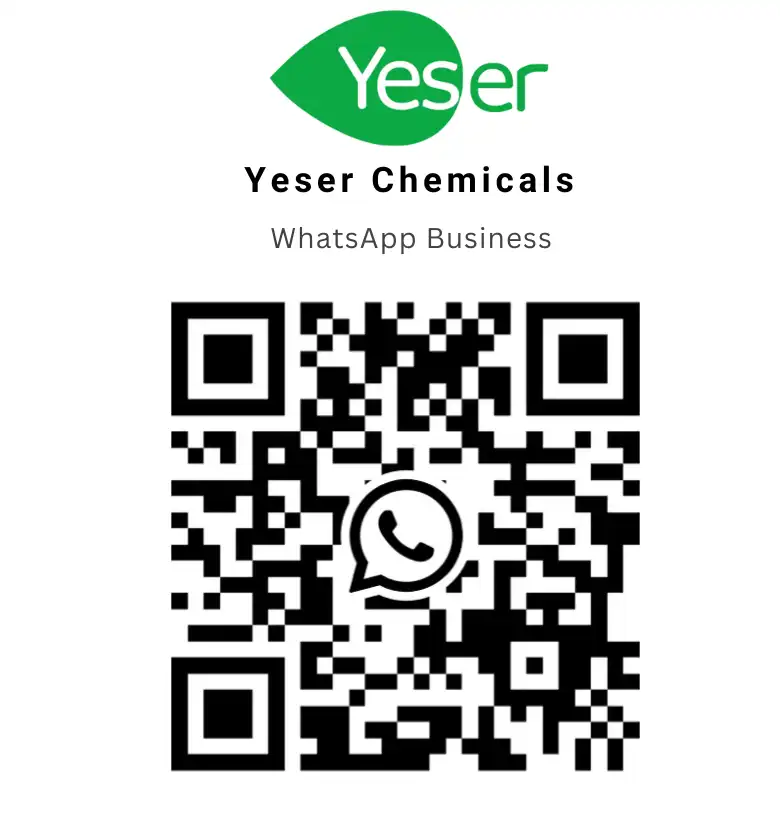Introduction
The Growing Demand for Affordable and Sustainable Detergents
In recent years, the shift towards more economical and environmentally friendly cleaning products has become evident. As we navigate through the complexity of this trend, it’s important to note the growing consumer preference for sustainable detergents that don’t break the bank. For startups, this demand presents both a daunting challenge and a golden opportunity to innovate within the market.
Challenges Faced by Startup Detergent Producers
Startups in the detergent industry face a multitude of challenges, from raw material sourcing to carving out a competitive edge in an established market. Understanding these hurdles is the first step toward overcoming them:
- Access to high-quality ingredients
- Building a loyal customer base
- Regulatory compliance and eco-friendly practices
- Keeping production costs low
Navigating through these obstacles is critical for the success of any emerging detergent brand.
The Importance of Practical Guidance for Startup Detergent Producers
The right guidance can make all the difference in this venture. At Yeser Chemicals, we believe in equipping aspiring entrepreneurs with the knowledge and resources they need to succeed. Let’s delve into the key aspects that startups must understand and master to make their mark in the detergent industry.
Main Focus Areas:
- Sourcing and using high-quality ingredients
- Regulatory insights and requirements
- Cost-effective production techniques
- Sustainable and eco-friendly practices
Understanding Detergent Chemistry
The Basic Science of Detergents
Detergents are a blend of chemical compounds designed to remove dirt and grime from various surfaces. Surfactants, the main ingredients in detergents, reduce the surface tension of water and facilitate the separation of dirt from fabrics or other substrates.
Essential Components:
- Surfactants: Compounds that lower surface tension
- Builders: Enhance the cleaning efficiency of surfactants
- Enzymes: Break down protein-based stains
- Bleaching agents: Remove color from stains
Understanding these components is foundational for any detergent producer.
The Role of Surfactants in Detergency
Surfactants are the workhorses of detergents, and their selection is pivotal. For instance, Sodium Lauryl Ether Sulfate(SLES) and Linear Alkyl Benzene Sulphonic Acid(LABSA), are the two most commonly used surfactants for creating rich lather and effective cleaning. Another surfactant, Cocamidopropyl betaine(CAPB), is known for its mildness and ability to reduce irritation in personal care products.
Popular Surfactants:
- Sodium Lauryl Ether Sulfate (SLES)
- Linear Alkyl Benzene Sulphonic Acid
- Cocamidopropyl Betaine
- Cocamide DEA
Matching the right surfactant to the intended application can define the detergent’s performance.
Factors Affecting Detergent Performance
The efficacy of a detergent is not solely dependent on its formula; external factors can significantly influence its performance. Here’s a summary of these crucial elements:
| Factor | Description |
|---|---|
| Water Hardness | Minerals in water that may inhibit cleaning performance |
| Temperature | Heat often enhances the effectiveness of detergents |
| Agitation | Mechanical action that helps break down dirt |
| pH Level | The acidity or alkalinity can affect enzyme activity |
Addressing these factors in formulation design can optimize effectiveness.

Understanding Different Types of Detergents
There are different detergents for various uses, such as laundry, dishwashing, and all-purpose cleaning. Each type has a formula optimized for its specific cleaning purpose, which may include:
- Laundry detergents: Enhanced with enzymes for stain removal
- Dishwashing liquids: Formulated for greasy residue
- Hand soap liquids:
- Floor cleaner:
- Glass cleaner:
- All-purpose cleaners: Balanced to tackle a wide range of cleaning tasks
A deep understanding of these distinctions is vital for startups to cater to niche markets effectively.
Sourcing High-Quality Detergent Ingredients
Selecting the Right Surfactants for Different Applications
Choosing the right surfactant is a critical decision that impacts a detergent’s performance and marketability. Startups must consider the surfactant’s cleaning power, foaming ability, and skin irritation potential. For example, products such as Sodium Lauryl Sulfate (SLS) are known for their effective cleaning properties but may be too harsh for sensitive skin. Contrastingly, Sodium Cocoyl Glycinate lends a gentle touch, preferred for personal care formulas.
Selection Criteria:
- Cleaning power
- Foaming properties
- Skin irritation potential
- Environmental impact
Startups need a well-curated lineup of surfactants to meet the diverse needs of their customers.
Identifying Sustainable and Eco-Friendly Ingredients
Sustainability has become a non-negotiable in the detergent industry. Ingredients should be biodegradable and have a minimal ecological footprint. Yeser Chemicals offers a range of ingredients like Ethylenediaminetetraacetic Acid Disodium and Hydroxypropyl Methylcellulose, which are eco-friendly and maintain high-performance standards.
Eco-Friendly Credentials:
- Biodegradability
- Low ecotoxicity
- Renewable sourcing
- Energy-efficient production
By choosing environmentally responsible ingredients, startups can meet consumer expectations and contribute to global sustainability efforts.
Evaluating Ingredient Quality and Cost-Effectiveness
The cost-quality balance is a fine line for startups. High-quality ingredients like Sodium Lauroyl Glutamate result in superior products but often come with a higher price tag. It’s important to evaluate the long-term payoffs of using premium ingredients, which can include enhanced customer satisfaction and repeat business.
Considerations:
- Initial ingredient costs
- Long-term customer retention
- Product performance
- Brand reputation
Remember, customers are willing to pay a premium for products that deliver exceptional results.
Building Relationships with Reliable Suppliers
Partnering with an experienced and reliable supplier like Yeser Chemicals is key to ensuring a steady supply of high-quality ingredients. This partnership can lead to benefits such as:
- Consistent access to premium ingredients
- Competitive pricing
- On-time deliveries
- Technical support and expertise
By forging strong relationships with reputable suppliers, startups can streamline their operations and maintain consistent product quality.
In the next section, let’s delve into how startups can formulate effective and affordable detergents, optimize manufacturing and quality control processes, and much more. Stay tuned as we continue to unfold the fabric of success for startup detergent producers.

Formulating Effective and Affordable Detergents
Balancing Cleaning Performance and Cost-Effectiveness
For startup detergent producers, balancing cleaning efficacy with cost-effectiveness is fundamental. It involves a delicate interplay between using potent ingredients and keeping the final product affordably priced. Formulating a detergent that achieves this balance necessitates an understanding of ingredient synergies and cost structure.
Balancing Strategies:
- Leverage multi-functional ingredients
- Optimize formulations to reduce excess
- Utilize concentrates to minimize packaging and shipping costs
Striking the perfect balance between performance and cost is key to not only meeting consumer demands but also preserving profits. Mastering this balance is often the trickiest aspect of crafting detergent formulas. It hinges on three critical factors: an in-depth grasp of consumer preferences, expert knowledge in formulation, and a thorough familiarity with the functions, effectiveness, and costs of various ingredients.
Optimizing Detergent Formulations for Different Applications
Different cleaning scenarios call for specialized detergents. Laundry requires strong stain removal, dishwashing needs grease-cutting power, and all-purpose cleaners must be versatile. Startups must understand these nuances to create targeted detergent formulations.
Application-Specific Considerations:
- Laundry: Enzymatic stain fighters and brighteners
- Dishwashing: Emulsifying agents for oils
- All-purpose: Broad-spectrum cleaning agents with safe pH levels
Creating the right formula for the right application can set a brand apart in the competitive detergent market.
Considering Environmental Impact and Sustainability
As awareness of sustainability grows, it’s becoming increasingly important for startups to formulate detergents with minimal environmental impact. This includes choosing biodegradable surfactants like Alkyl Polyglycoside and avoiding phosphates to protect ecosystems.
Sustainable Formulation Elements:
- Biodegradable ingredients
- Plant-based surfactants
- Phosphate-free formulas
- Minimal use of volatile organic compounds (VOCs)
Adhering to these principles not only appeals to eco-conscious consumers but also aligns with global efforts to reduce pollution.
Utilizing Ingredient Blends and Synergistic Effects
Harnessing the synergistic effects of combining certain ingredients can boost detergent performance while potentially reducing costs. This approach involves detailed knowledge of how different ingredients interact and complement each other.
Examples of Synergistic Blends:
- Combining diverse surfactants can broaden the cleaning spectrum, increase viscosity, and boost foam
- Pairing surfactants with enzymes can lead to more effective stain removal
- Adding softeners and fragrances creates a more enjoyable user experience
- Incorporating builders and chelating agents can strengthen water softening capabilities
Effective blends create high-performing detergents that can compete with established brands on quality and price.
Manufacturing and Quality Control
Establishing Efficient and Cost-Effective Manufacturing Processes
Efficiency in manufacturing is vital for startups to stay competitive. By optimizing production processes, startups can minimize waste, reduce downtime, and scale up production as demand grows.
Manufacturing Efficiency Tips:
- Implement lean manufacturing principles
- Invest in multitasking equipment
- Continually evaluate and refine processes
A streamlined manufacturing setup is crucial for producing affordable, high-quality detergents. As a startup entering this industry, establishing your production lines with the correct equipment and processes can be daunting. Yeser Chemicals provides complete worry-free turnkey solutions, offering you peace of mind and assistance in setting up detergent manufacturing plants of all sizes, from small to large scale.
Implementing Quality Control Procedures to Ensure Product Consistency
Quality control is non-negotiable in manufacturing. Startups must establish strict quality control protocols to ensure that every batch of detergent meets high standards.
Quality Control Essentials:
- Regular testing of raw materials and final products
- Record-keeping to track batch consistency
- Customer feedback integration into quality control practices
A solid quality control system builds customer trust and reinforces brand reputation.
Adhering to Regulatory Standards and Industry Best Practices
Compliance with industry regulations is essential for legal operation and consumer safety. Startups need to be knowledgeable about regional and international standards in detergent manufacturing.
Regulatory Considerations:
- Registration with appropriate health and safety bodies
- Understanding of labeling requirements
- Compliance with environmental discharge norms
Staying updated with regulatory changes helps prevent legal issues and safeguard consumer interests.
Optimizing Production Processes for Sustainability
Sustainability in production not only concerns the end product but also the means of creating it. Water conservation, energy-efficient machinery, and waste reduction are just a few areas where production processes can be optimized for sustainability.
Sustainable Production Practices:
- Recycling water in manufacturing plants
- Utilizing renewable energy sources
- Implementing waste reduction programs
Sustainable practices showcase a startup’s commitment to the environment and can be a strong selling point for consumers.
Let’s move on to discussing the critical aspects of packaging, branding, and marketing strategies that startups need to consider in order to thrive in the competitive detergent market.
Packaging and Branding Considerations
Designing Eye-Catching and Informative Packaging
The first interaction consumers have with a product is often through its packaging. For detergent startups, this means that packaging should not only be visually appealing but also convey the product’s benefits and sustainability features clearly.
Packaging Design Goals:
- Attractiveness to stand out on shelves
- Clarity in labeling for informed decisions
- Eco-friendly materials to showcase sustainability
- Compatibility with product use and storage
Innovative packaging design can significantly influence consumer purchasing decisions.
Highlighting Key Detergent Features and Benefits
It’s critical for startups to clearly communicate the unique selling points of their detergents. Features like “biodegradable,” “hypoallergenic,” or “compatible with all washer types” must be front and center to inform consumer choices.
Key Features to Highlight:
- Eco-friendliness
- Effectiveness on various stains
- Dermatologically tested for sensitive skin
- Packaging recyclability
Prominent display of these features can help build a strong product image and encourage brand loyalty.
Communicating Value and Affordability to Consumers
Prospective customers need to understand not only the quality but also the value that startup detergent brands offer. Transparent communication about the cost-to-benefit ratio can help assert a product’s position in the market as both high-quality and affordable.
Value Communication Strategies:
- Compare efficiency over time compared to competitors
- Highlight concentrated formulas for longer use
- Showcase multi-use capabilities for better value
Effective value communication can be a definitive factor in a customer’s decision to switch brands.
Establishing a Strong Brand Identity
In the world of detergents, a strong brand identity can separate successful products from those that fade into obscurity. Startups should focus on building a consistent and memorable brand experience, from logos to customer service.
Brand Identity Elements:
- Visually distinctive logo and color scheme
- Consistent tone of voice across all communications
- Storytelling that connects with the audience
- A commitment to customer satisfaction
A well-crafted brand identity resonates with consumers and fosters long-term brand champions.
With the right packaging and branding, a startup can effectively enter the detergent market. However, without the right marketing and sales strategies, even the best products might not reach their target audience. In the following sections, we will explore these critical elements in further detail.
Marketing and Sales Strategies
Identifying Target Markets and Customer Segments
Understanding the target market is essential for effective marketing. Startups need to identify specific customer segments that are most likely to benefit from their products.
Target Market Identification Criteria:
- Demographics such as age, gender, and income
- Consumer behaviors and preferences
- Regional factors, including water hardness and eco-sensitivity
Identifying and catering to the right audience can streamline marketing efforts and increase sales.
Developing Effective Marketing Campaigns to Reach Consumers
A well-planned marketing campaign can make all the difference in a product’s success. It’s important to craft campaigns that resonate emotionally and rationally with the chosen target market.
Effectiveness-Boosting Campaign Features:
- Clear and compelling messaging
- Use of testimonials and user reviews
- Engaging visual content
- Promotions and incentives
Effective marketing campaigns tell a compelling story that aligns with the consumers’ values and needs.
Utilizing Digital Marketing and Social Media Platforms
Digital marketing and social media have revolutionized how products are advertised. For startups, using these platforms strategically can provide greater reach and engagement compared to traditional media.
Digital Marketing Advantages:
- Cost-effectiveness
- Targeted advertising options
- Analytics for measuring campaign effectiveness
- Real-time customer interaction
Social media, in particular, offers a fertile ground for building community around a brand and fostering direct communication with consumers.
Establishing Distribution Channels and Partnerships
Vital to the startup’s success is getting products onto shelves—virtual or physical. Strategic partnerships—like those with online retailers, local shops, or distributors—can help expand a detergent’s reach.
Distribution Strategy Pillars:
- Selection of distribution partners aligning with the brand’s values
- Negotiation of favorable terms for scalability
- Exploration of unique channels like subscription services or eco-effective refilling stations
An expansive and flexible distribution network ensures that products are available where and when consumers need them.
Continuing, we will delve into how a startup can overcome common challenges in the industry, ensuring their foothold and paving the way for their ultimate success. Let’s discover how to navigate these challenges and case studies to learn from others’ experiences.
Overcoming Common Challenges
Addressing Supply Chain Disruptions and Ingredient Shortages
The detergent industry, like many others, is not immune to supply chain issues. Proactive strategies can help startups mitigate these risks.
Supply Chain Management Strategies:
- Diversify suppliers to minimize risk
- Invest in inventory management software
- Build contingency plans for raw material shortages
Stability in the supply chain is crucial for maintaining consistent product availability and quality.
Maintaining Product Quality and Consistency amid Market Fluctuations
Market fluctuations can lead to variability in ingredient quality and availability. It’s critical for startups to have robust quality assurance processes in place.
Quality Assurance Methods:
- Strict incoming material checks
- In-process monitoring and controls
- Finished product testing before shipment
Consistent quality despite market changes builds and maintains consumer trust in the brand.
Navigating Regulatory Changes and Compliance Requirements
Regulatory landscapes are constantly evolving. Startups must stay abreast of changes to ensure compliance and avoid costly penalties or recalls.
Regulatory Compliance Tips:
- Regularly review regulatory updates
- Engage with industry associations for insights
- Train staff on compliance requirements
Staying compliant not only avoids legal issues but also demonstrates a commitment to consumer safety and product integrity.
Adapting to Evolving Consumer Trends and Market Preferences
Consumer preferences and trends can change rapidly, and detergent startups need to be agile to keep up. It’s important to regularly gather and analyze market intelligence for informed decision-making.
Adapting to Market Changes:
- Conduct consumer surveys for feedback
- Track industry trends and competitor moves
- Iterate on product offerings to meet new demands
An adaptive approach allows startups to remain relevant and appealing to consumers in an ever-changing market.
Case Studies of Successful Startup Detergent Producers
Analyzing the Strategies and Success Factors of Established Brands
By examining the paths taken by successful detergent startups, emerging companies can gain valuable insights and inspiration.
Key Success Factors:
- Strong brand differentiation
- Innovative product formulations
- Effective use of digital marketing
- Agile response to market changes
Studying the success stories within the industry can offer practical guidance for startups looking to replicate that success.
Learning from the Challenges and Experiences of Other Startups
Understanding the challenges faced by other startups in the industry, and how they were overcome, is an invaluable learning opportunity.
Common Challenges and Responses:
- Navigating cash flow issues with innovative financing solutions
- Overcoming market entry barriers through niche targeting
- Adapting to customer feedback with product refinements
Turning challenges into learning experiences is a hallmark of a resilient and successful startup.
Identifying Best Practices and Replicable Strategies for Success
Adopting best practices from established detergent producers can help startups accelerate their path to success.
Best Practices to Emulate:
- Commitment to R&D for constant improvement
- Sustainability as a core business principle
- Customer-centric approach in all business processes
Embracing successful strategies from industry leaders can guide startups on the road to longevity and growth.
Conclusion
The Future of Sustainable and Affordable Detergent Production
The detergent industry is poised for evolution towards greater sustainability and affordability. Startups willing to innovate and adapt stand to gain significantly from these shifts.
Future-Focused Considerations:
- Innovative packaging solutions
- Formulations with alternative, sustainable ingredients
- Alignment with circular economy principles
The growth and success of a detergent startup hinge on its ability to anticipate and capitalize on industry trends.
Embracing Innovation and Technological Advancements
Technology and innovation are driving forces that can help startups differentiate themselves and optimize their operations.
Innovation Opportunities:
- Biotechnology for enzyme development
- Nanotechnology for improved cleaning efficacy
- Automation for enhanced manufacturing precision
Staying at the forefront of technological advancements can provide startups with a competitive advantage.
Contributing to a More Eco-Conscious and Sustainable Detergent Industry
Every startup has an opportunity to contribute meaningfully to the sustainability of the detergent industry.
Sustainable Contributions:
- Eco-friendly formulations
- Energy-efficient production methods
- Waste reduction initiatives
By prioritizing sustainability, startups can make a positive impact on the industry and the planet.
Achieving Long-term Growth and Success in the Detergent Market
Long-term growth requires strategic planning, a focus on quality, and an unwavering commitment to customer needs.
Growth Strategies:
- Expand product lines to cover more niche markets
- Explore global markets for wider distribution
- Foster customer loyalty through superior service
With the right approach and perseverance, startups can thrive and become influential players in the detergent market.
Startup detergent producers have a promising path ahead, filled with opportunities to make high-quality, affordable detergents that meet the needs of today’s discerning consumers. By following practical guidance, embracing innovation, and pursuing sustainability, startups can achieve both economic success and environmental stewardship. As an advocate for industry growth and a provider of high-quality ingredients, Yeser Chemicals stands ready to support emergent brands every step of the way.






